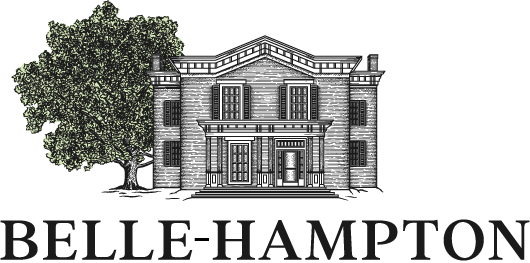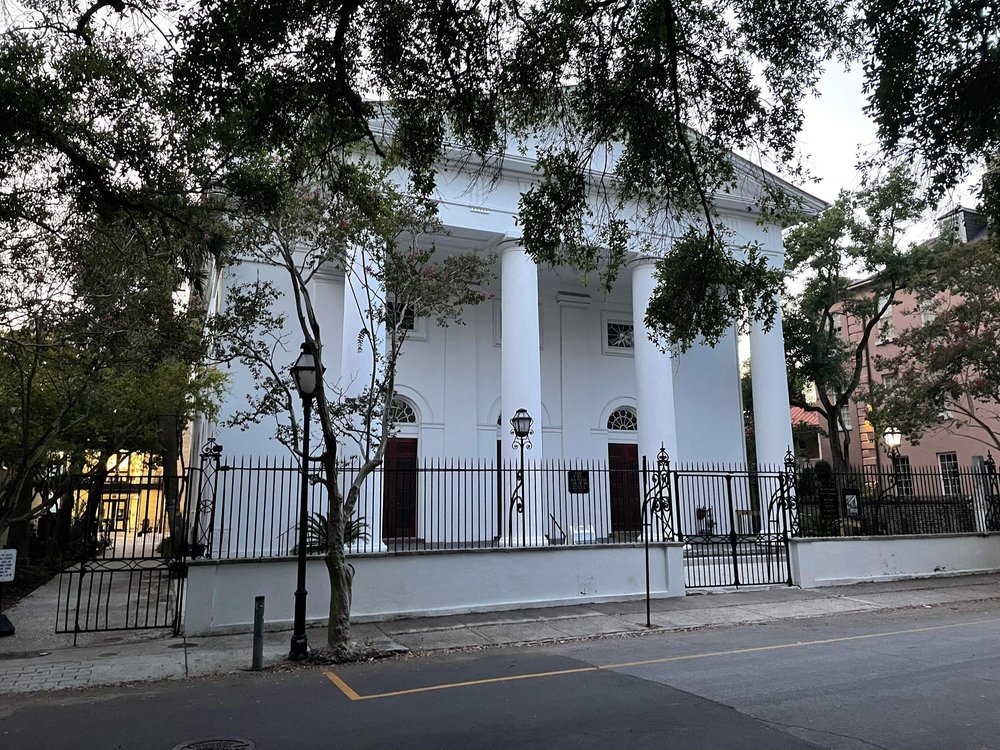Building on Your Family Balance Sheet by Finding Your Life’s Purpose: Beverly Lacy Hoge’s Story
Beverly Lacy Hoge
Like a family's balance sheet, life presents us with various forms of capital (intellectual, social, human, spiritual) and liabilities (death, illness, black swan events, or financial change). Just as financial statements include assets and debts, our lives are composed of moments that encompass tragedies and joys. These contrasting elements, like different forms of capital and liabilities, shape the overall picture of our journey. We find richness and depth in the delicate balance between these experiences. This is Beverly Lacy Hoge’s story behind his purpose.
Perseverance is the art of surviving and thriving in the face of adversity. This is how Beverly Lacy Hoge began his life. Born in 1863 during the Civil War, Beverly Lacy Hoge grew up in the age of war and reconstruction in Blacksburg, VA—a difficult time in Virginia’s history. His oldest brother died in the Battle of Gettysburg; he was a sharpshooter for the Confederate Army. As the son of James Fulton Hoge, a prominent lawyer and a conscientious member of the Masonic fraternal order, B. Lacy Hoge faced his father's death after a painful and prolonged illness with various diseases. He was ten years old and left to figure out his future independently. But overcoming tragedy became his quest for life’s purpose.
Living on a farm off Lusters Gate Road in Blacksburg, his family didn’t have much financial capital during reconstruction. However, they had a strong family balance sheet with other forms of capital. He came from prominent Lawyers, Doctors, and Ministers, all accomplished family members recorded as far back as 1125 in Scotland. Education was a consistent core value through the generations. He was fortunate that Blacksburg started Virginia Agricultural and Mechanical College through a land grant. At fifteen, he enrolled as a military training student, which was required for all enrollees then. He would graduate in 1884 as a Civil Engineer and then continue his education at the University of Virginia for a law degree.
After graduation in 1887, he married Marie Antoinette Hatcher, a descendant of Andrew Lewis who served as one of George Washington's principal officers in the Virginia Regiment during the French and Indian War. She was a devout Baptist, staunch in religious and moral convictions. A woman plagued by her own family tragedy. Her father served in the Confederate Army under Andrew Jackson, where he was severely injured at the Battle of Cedar Mountain. Her mother died shortly after her birth, so an aunt raised her. She was just in her teens when she married. However, she was able to get an education at Hollins College.
They were quickly blessed with a little girl, Annie Hoge (later Annie Hoge Vick). But tragedy soon followed. Their son, Beverly Lacy Hoge, Junior, became ill with diphtheria. Diphtheria is a highly contagious bacterial infection. It's spread by coughing, sneezing, or close contact with infected people. It hinders breathing and swallowing. But little Lacy was not thought to have a life-threatening sickness until his unexpected death. He was even sitting up when he took his last breaths. B. Lacey Hoge, Junior was six years old.
Although he had a promising career at his law practice, Wright and Hoge, this tragedy created a pivot in Beverly Lacy Hoge’s purpose. Going from a prominent lawyer to a Baptist minister might have seemed extreme then. His daughter Annie recollected that her dad paced back and forth on their front porch after the burial services, saying, “I have rebelled against the Lord long enough.” He felt for a long time that he had a calling to preach but had taken no action. He wasn’t acting intentionally toward his life purpose until now. This tragedy was a reason to seek his true calling.
After being baptized at thirty-five years old and ordained as a minister, the family went from Roanoke, Virginia, to Selma, North Carolina, where he became a Baptist preacher. B. Lacey Hoge came to the church as pastor in 1898 during a severe economic depression. Church finances were in bad condition, the building badly needed repairs, and the membership had continued declining for several years. His daughter, Annie, proclaimed they lived on the other side of the tracks. Although they were on the south side of the railroad tracks, she was reflecting on living without the advantages that more socially or economically stable people are accustomed to. Going from a prominent lawyer to a minister of limited means was a significant change.
Their ministry service in Selma was only nine months. They moved on to Concord, North Carolina, where a new Baptist Church was to be built. Unfortunately, tragedy didn’t elude the family even after professing his life to God. Another child was lost, Winston Hatcher Hoge. He was only a couple of weeks old. But the family persisted, and James Fulton Hoge was born in 1901. And after another move to Jackson, GA, Robert Hatcher Hoge came along. B. Lacy Hoge was quoted as saying:
“Just eight years ago, I gave up law practice in Virginia and entered the ministry. These have been the best years of my life. The Lord has. Greatly blessed me.”
First Baptist Church, Charleston, SC
1908-1911, Dr. B. Lacy Hoge lived in Charleston, SC. It was said about Dr. Hoge’s time at the First Baptist Church, "The work in Charleston was most difficult, but the pastor was not discouraged, and God greatly blessed his labor." At that time, the church was going through financial difficulty. They were hit by a hurricane in 1911 and had to sell some property. His son, Robert H. Hoge, described the hurricane in his autobiography as “a storm to remember; its impression on me as a child is still vivid.” He was six years old at the time.
His youngest daughter, Nettie, was born during B. Lacy Hoge’s time in Richmond, VA. She was born with Down syndrome. (Note: She was in the care of her family until her father died when she was six years old. At some point, she lived in Caswell Developmental Center, a center for adults with intellectual disabilities and other developmental disabilities in Kinston, until she died in 1970). Although we don’t have documentation, it can be assured that she brought joy and love into their home as so many children with Down syndrome do.
Dr. B. Lacy Hoge was an eloquent orator, a gift of the Hoge lineage. His engineering and law training allowed him to craft a sermon with an organized yet powerful message. He spoke with candor in his teachings but was open to amicable discussions of divergent thoughts. He said, “I have nothing unkind to say about those who differ with me; I give them credit for being honest and sincere and ask them to give me credit for the same…”
And praise of his sermons came from all types of congregations:
“We have heard the best preachers of all denominations in several states, and in our humble judgment, Dr. B. Lacy Hoge is one of the greatest preachers we have ever heard. He ranks with such preachers as Dr. G. Campbell Morgan (British evangelist, preacher, a leading Bible teacher, and a prolific author). It was our privilege to hear often that great Presbyterian preacher of Richmond, Virginia, Dr. Moses D. Hoge (a great uncle of Lacy), and we place Dr. B. Lacy Hoge in the same class with his distinguished relative.”
After many sermons preached at churches, B. Lacy Hoge was asked to speak at the Golden Jubilee at Virginia Tech. He came to his alma mater as a good representation of the university's motto: Ut Prosim, to Serve. However, that was not their motto until 1890, after his graduation. He talked inspirationally about his happiness during his days at Virginia Tech and his career over the last half-century. He declared that “for the purpose of redeeming man, building character and carrying out the plan of the purpose of God, we have three great educational institutions: 1) the home; 2) the church; and 3) the school.”
Although B. Lacy Hoge endured many liabilities, such as death, war, and economic hardship, he found his purpose: to serve God. Finding one's purpose is a form of Human Capital. Human Capital is defined as promoting each person as an individual but part of the collective family balance sheet asset. A person’s physical and mental wellness makes up this positive asset of human capital. Flourishing with work, having a positive self-identity, and pursuing a path to happiness is considered an asset to the family. The goal is to find your life’s purpose and strive toward that purpose intentionally.
However, his story ended in 1924. He had heart issues after months of illness. His uncle, Governor J. Hoge Tyler’s last entry in his diary, said, “Have just heard of the death of our cousin Reverend B. Lacy Hoge of Beckley, West Virginia.” B. Lacy Hoge died, leaving a legacy of intellectual, human, social, and spiritual capital despite his long list of liabilities. He persevered. James Fulton Hoge, his son, described his father’s as follows:
“To his preaching, he applied the logic or argumentative style and the capacity for research acquired in the practice of law. He possessed by natural endowment the figt (families in global tradition) of oratory and, by the eloquence of delivery and depth of thought, attained notable prominence throughout the south. He kept up his interest in current political and social events and, through interest and fearlessness of consequences, made himself a part of the life of the communities in which he lived. By precept and example, he instilled in me my pride of family and inspired me to emulate his character. I count it my heritage to have had such a sire and as a memorial to him I dedicate my part in the presentation of this record.” (Note: James Fulton Hoge compiled the Family of Hoge book from Governor J. Hoge Tyler’s research)


